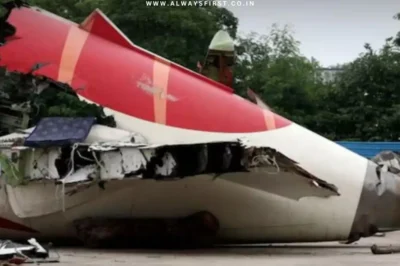Key Points:
✔ 112 Air India pilots (51 commanders, 61 first officers) took sick leave on June 16 following the AI-171 crash.
✔ DGCA urges airlines to implement mental health programs and peer support systems for flight crews.
✔ India denies UK media claims of mishandling victims’ remains, insists protocols were followed.
Surge in Pilot Sick Leaves After AI-171 Tragedy
The Indian government confirmed on Thursday that 112 Air India pilots reported sick on June 16, just days after the catastrophic AI-171 crash in Ahmedabad, which claimed 260 lives. Minister of State for Civil Aviation Murlidhar Mohol informed the Lok Sabha that while there was a “minor increase” in sick leave applications across fleets, the airline managed operations without major disruptions.
According to reports, 51 commanders (P1) and 61 first officers (P2) took leave on the same day, sparking discussions about mental health challenges among aviation professionals following the tragedy.
DGCA Stresses Mental Health Support for Crew
In response, the Directorate General of Civil Aviation (DGCA) reminded airlines of its 2023 advisory, urging them to enhance mental health training and provide access to Peer Support Programs (PSP). These confidential, non-punitive systems are designed to help pilots and cabin crew cope with stress, trauma, and anxiety—a critical need after high-fatality incidents.
No Compensation Policy for Ground Victims
In a separate statement, the minister clarified that India currently has no specific compensation policy for civilian victims on the ground in aircraft accidents. This revelation comes amid growing demands for clearer regulations regarding liability in aviation disasters.
India Denies UK Media Claims on Mishandled Remains
Meanwhile, the Ministry of External Affairs (MEA) dismissed a British media report alleging that two grieving families in the UK received the wrong bodies of AI-171 crash victims.
MEA Spokesperson Randhir Jaiswal stated that all remains were handled “with utmost professionalism and dignity,” following established identification protocols. He emphasized that Indian authorities were collaborating with UK officials to address any concerns, refuting claims of negligence.
The Daily Mail’s report had stirred controversy, but Indian officials maintain that strict procedures were followed in victim identification and repatriation.
Looking Ahead: Aviation Safety & Mental Health in Focus
The AI-171 crash aftermath has reignited debates on pilot well-being, mental health safeguards, and victim compensation policies. As investigations continue, the DGCA’s push for better psychological support systems could mark a turning point in how India’s aviation sector addresses crew welfare post-disasters.






































Leave a Reply